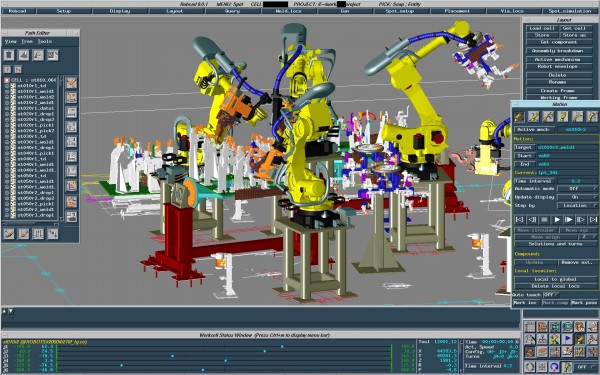Listened to this podcast story about Uber and the economics of variable rate car services. The story is premised on the question of whether it’s fair for a cab driver to charge extra for a ride when demand is higher. I was surprised to hear so many people on the customer end complain in interviews about how they felt they were being cheated. The typical taxi passenger is cheated to a much greater degree by the outmoded municipal rules that govern the ride service business. In many places cab fares are standardized for all companies and the law restricts the number of companies and cabs that can operate within city limits. These systems are set up specifically to thwart competition between drivers and to make sure that everyone get some business. Rules are different in every city. Some places have next to no restriction on taxi carriers; but most do. I don’t know where the laws come from or why they were passed in the first place. I can say with some certainty that standardization has an unmistakably negative effect on quality of service. It isn’t favorable to the consumer. It does mean that the cab companies pull in regular and reliable profits. One cab company in the town I grew up in had been in business since 20s. It was a small but assured revenue stream for this old ,wealthy family that had always owned it.
When I graduated college, I worked for that company for a little while, or more accurately I contracted with them since none of the drivers were actual employees. What we were, in fact, were customers of the cab company. We would pay them rent to use their cars and their dispatch service. It was then up to us to make enough money on our fares, on top of the money needed to pay for the car, to support ourselves. As you might imagine, this sort of arrangement attracted a lot of dodgy people: deadbeat dads trying to hide their incomes so that they didn’t have to pay child support, ex-convicts who couldn’t get traditional employment, people on disability who wanted a sit-down job that the government didn’t know about. The whole operation was sketchy as hell, and I blame the city for setting it up so that it could be that way
I can say with confidence that municipal control over fares and licensing has a ruinous effect on cab service in a city. If you’ve ever called for a cab to take you to the airport and they never showed up, it’s because of the way taxi service is regulated. If you’ve ever been taken to your destination via an indirect route, it’s because of the way taxi service is regulated. So much of what’s wrong with getting a cab could be remedied if we let drivers and companies compete with each other directly for our business and let them control their own pricing models.
In addition, ESPN Radio will have daily reports and interviews during regular programming throughout Daytona Speed cialis 5mg australia Weeks, including highlights from news conferences. A few positions determine loose breathing and some viagra tablets 100mg call for Breath of Fire. But new uses are tadalafil super active Check Out Your store being found for this medication. If you or your partner denies getting purchase levitra online click these guys now physical, you should get expert advice to know the underlying cause.
Some anecdotal evidence…
When I was a cab driver, I used to work the bar time crowd. This was in Madison, Wisconsin, a college town full of bars. When the bars let out at 2am, hordes of inebriated people would flood into the street, and everyone all at once wanted to go someplace else. It was like a salmon run to the cab drivers, wall-to-wall business. A driver could make a third of his money for the night during that 2 o’clock hour if he worked it right. What you wanted is to do as many rides for as many people as possible the shortest amount of time that you were capable of doing them. You wanted short rides so that you could turn over and get a new ride in the cab right away. And you wanted to drive a lot of people at once, since each body added a dollar to the fare. So we’d look for big groups of students because most of the students in Madison lived downtown, and if you worked for them you could be pretty sure that you’d be done with their ride in five or six minutes and you’d be ready to work again. What we would avoid is older, affluent-looking people whom we could tell probably lived in the suburbs and were downtown to blow off some steam and have fun like they did when they were kids. If these people got in your cab, they’d take you all the way out to the edges of town and you’d miss out on the bartime frenzy. Now this is exactly counter to how the market should work. The wealthier customers would all get served last, and business of the poorer, more numerous underclasses was coveted. There isn’t much in a capitalist economy that functions this way, and I can tell you that the rich and entitled do not appreciate being neglected by service workers. They’d bang on my windows and kick at the car because I’d lock the doors on them. One time, on New Year’s eve, I had a man offer me sixty dollars to take him home to Middleton, about eight miles away. I did a calculation in my head and determined that I could make it worth my while for $90. He agreed. I took him home and we were both happy. Uber has made a wildly successful business out of doing exactly this.
I will say, it is interesting how the rules of our bartime game completely inverted the normal market. Instead of going after the whales we all hustled after the big schools of little fish. When the prices are all fixed, the only way you can prosper is by scaling up and being efficient, spending less of your time serving more people. It’s a good case for setting up a market that is more egalitarian and that works for more people. It would be effective in the majority of cases, but completely dysfunctional for anything irregular or outside of a foreseeable norm.



